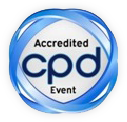Wojciech Hahnel
Hochschule Kaiserslautern University of Applied Sciences, Germany
Title: Development of an automated portable system for extraction of DNA from difficult samples
Biography
Biography: Wojciech Hahnel
Abstract
DNA extraction from difficult samples (e.g. stool, soil) is problematic, as there are inhibitors that influence further processing of DNA and compounds which are mutagenic and destructive against DNA. Especially fecal DNA has diagnostic relevance because it contains DNA from various sources, like blood or intestinal mucosa. Analysis of fecal DNA might allow conclusions on the presence of (intestinal) diseases like tumors and inflammations at early stages in a quick and non-invasive manner.
Kits for DNA extraction from difficult samples are commercially available, but these are neither automated nor quick nor easy to use. Thus, an easy automated portable system for extraction of DNA from difficult samples would be beneficial. It could be used on-site, e.g. bedside in hospitals.
After testing different strategies and kits, the geneMAG-RNA/DNA kit from chemicell using magnetic beads was found to be suitable. Since this kit has been developed for other sample types, it was adapted and scaled down to a portable microchip system. For further evaluations soil was used because of easier availability and handling. Centrifugation was replaced by sedimentation. As a result complete DNA extraction could be performed inside the chip. As pumping is performed by air pressure, most of the tubing is not in contact with liquids and can be reused. The chip itself can be reused as well.
Future plans include further automation of the system, testing of different sample types and evaluation of the sedimentation step. Secondly, we test pre-filled chips in order to provide a ready-to-use system.

